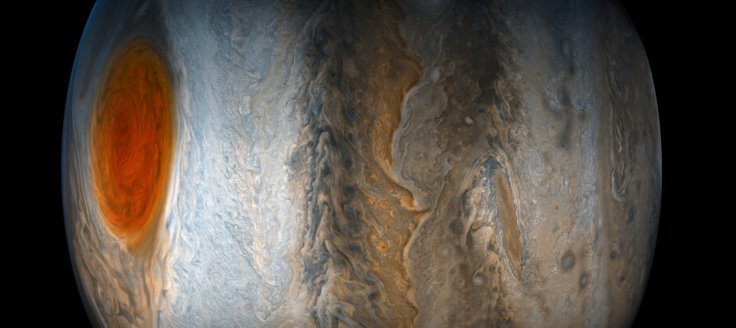
In a milestone breakthrough, researchers have spotted water clouds in Jupiter's Redspot, which indicates the possible presence of alien life in the planet.
Jupiter's Redspot is actually a giant storm discovered in 1830 and it is much bigger than earth. Researchers who took part in the study believe that the discovery of water clouds in the Great Redspot could help the scientific community to learn more about the planet and to determine whether it ever had hosted life.
Clemson University astrophysicist Máté Ádámkovics, the researcher who led the study revealed that further studies on these water clouds will help to know whether similar water bodies and clouds exist somewhere else in the planet.
"Water may play a critical role in Jupiter's dynamic weather patterns, so this will help advance our understanding of what makes the planet's atmosphere so turbulent," said Máté Ádámkovics, New York Post reports.
Ádámkovics added that the possibility to find life on Jupiter could not be ruled out as the presence of water has been discovered in the clouds in the Great Redspot.
"And, finally, where there's the potential for liquid water, the possibility of life cannot be completely ruled out. So, though it appears very unlikely, life on Jupiter is not beyond the range of our imaginations," added Ádámkovics.
During the research, scientists made use of thermal-sensitive telescopes to detect chemical signatures of water inside the Great Redspot. After analyzing the pressure of water, and measuring it in combination with carbon monoxide, researchers found that Jupiter has nine times more oxygen than the sun.
The new research report came just a few months after researchers at NASA found the possibility to find evidence of life on Saturn's moon Enceladus. NASA adviser Carolyn Porco revealed that Enceladus could be the best possible habitat where alien life may be thriving. Carolyn also suggested that two moons of Jupiter Ganymede and Europa are also strong contenders to find alien life.









